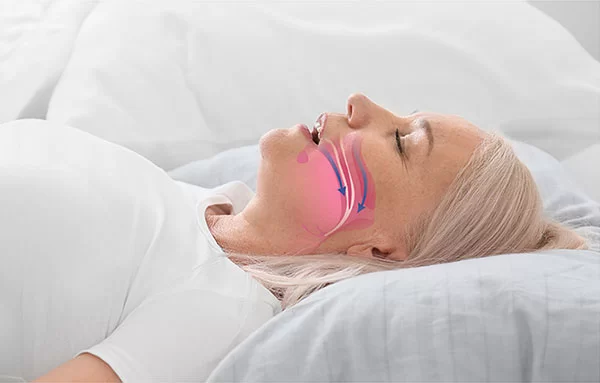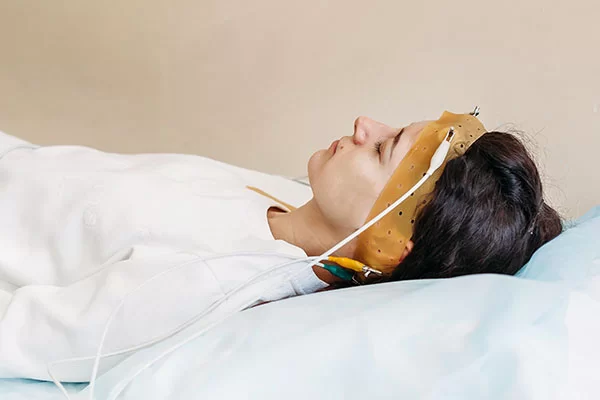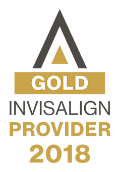Do You Have Obstructive Sleep Apnea?
Do you wake up every morning feeling exhausted? Are you struggling to concentrate throughout the day and experiencing constant irritability? These symptoms may indicate a sleep disorder known as obstructive sleep apnea (OSA) rather than just a lack of quality sleep.
If you suspect you have obstructive sleep apnea or are unsure about your sleep health, please contact our Tacoma, WA, dentist to schedule an evaluation by calling (253) 761-5422.

What Is Obstructive Sleep Apnea?
Obstructive sleep apnea (OSA) is a prevalent sleep disorder marked by repeated episodes of upper airway collapse during sleep. This leads to sleep-disordered breathing and interrupted sleep patterns.
There are varying degrees of severity: mild sleep apnea is a less serious form, while severe sleep apnea poses greater health risks. Getting a diagnosis of obstructive sleep apnea is essential for effective treatment and management.
Impact on Your Health
Neglecting OSA can result in significant health issues. The most common risks include:
- Increased risk of cardiovascular disease
- Hypertension
- Cognitive impairment
- Accidents caused by excessive daytime sleepiness
Symptoms of Obstructive Sleep Apnea (OSA)
Symptoms of obstructive sleep apnea can manifest differently at night and during the day.
Nighttime Symptoms
The nighttime symptoms of obstructive sleep apnea include:
- Loud snoring
- Gasping or choking
- Witnessed pauses in breathing during sleep
- Recurrent limb movements during sleep
- Feeling tired or exhausted upon waking
These symptoms can disrupt not only the individual’s sleep but also the sleep of their bed partner. If you or your bed partner notice any of these symptoms, especially while trying to fall asleep, it’s important to seek medical assistance for proper evaluation and diagnosis.
Daytime Symptoms
During the day, individuals with obstructive sleep apnea may experience the following symptoms:
- Excessive sleepiness
- Morning headaches
- Irritability
- Difficulty concentrating
- Depression
These daytime symptoms can significantly impact a person’s quality of life, affecting work performance, social interactions, and overall well-being.
Causes and Risk Factors of Obstructive Sleep Apnea (OSA)
Obstructive sleep apnea (OSA) can arise from various causes and risk factors, including:
- Obesity: Excess fat in the neck can pressure the airway, increasing the risk of collapse during sleep.
- Neck Circumference: A larger neck may indicate a narrower airway, heightening the risk.
- Gender: Men are more prone to OSA, with an increased risk for women who are overweight.
- Age: More common in middle-aged and older adults, though it can affect individuals of any age, including children.
- Family History: A genetic component may be present, as OSA can run in families.
- Smoking: Increases inflammation and fluid retention in the upper airway.
- Alcohol and Sedatives: These can relax throat muscles, raising the likelihood of airway collapse.
- Nasal Congestion: Chronic congestion or a deviated septum can lead to mouth breathing, which contributes to OSA.
- Medical Conditions: Conditions like hypothyroidism, acromegaly, and PCOS are linked to higher OSA risk.
- Enlarged Tonsils and Adenoids: In children, these can obstruct the airway.
- Craniofacial Abnormalities: Structural issues in the face and skull can narrow the airway.
- Gastroesophageal Reflux Disease (GERD): The relationship is complex, but GERD may worsen OSA symptoms.
- Menopause: Hormonal changes and weight gain post-menopause can elevate OSA risk.

Diagnosing Obstructive Sleep Apnea
Consultation and Medical History
During a consultation for obstructive sleep apnea (OSA), a sleep specialist will evaluate and diagnose the condition. This process typically involves:
- A comprehensive review of your medical history
- A physical examination, which includes checking the throat, neck, and mouth
- A recommendation for a sleep study to assess the severity of the condition
Sleep Studies
Sleep studies can be conducted either in a specialized laboratory or at home using a portable monitor. The latter is considered the most reliable method for diagnosing obstructive sleep apnea, as it measures breathing disruptions during sleep.
During a sleep study, the following factors are monitored:
- Respiration
- Motor activity
- Heart rate
- Time taken to enter various stages of sleep
Once a diagnosis is confirmed, you will return to our dental office in Tacoma to discuss your treatment options.
Treatment Options for Obstructive Sleep Apnea (OSA)
Lifestyle Changes
Making lifestyle changes can significantly help alleviate symptoms of OSA. Recommended changes may include:
- Weight Loss: Losing weight has been shown to lessen the severity of obstructive sleep apnea.
- Avoiding Alcohol and Sedatives: These substances can relax the muscles in the upper airway, worsening OSA symptoms.
- Practicing Good Sleep Hygiene: Maintaining a consistent sleep schedule and creating a conducive sleep environment can enhance sleep quality and reduce the severity of OSA symptoms.
CPAP Therapy
Continuous Positive Airway Pressure (CPAP) therapy is considered the most effective treatment for severe obstructive sleep apnea. CPAP therapy involves a bedside machine that delivers pressurized air through a mask fitted over the nose and/or mouth, keeping the airway open during sleep.
Regular use of CPAP for moderate sleep apnea has been shown to significantly improve cognitive function and overall health and reduce the risk of cardiovascular complications for those with moderate to severe sleep apnea.
Oral Appliances
Oral appliances, like SomnoDent, are another option for treating OSA. These specialized mouthpieces are designed to maintain proper positioning of the jaw and tongue, reducing pressure on the windpipe.
Surgery
Surgical interventions, such as uvulopalatopharyngoplasty (UPPP), genioglossus advancement (GA), or even a tracheostomy, may be considered for severe cases of OSA or when other treatments have failed. However, since surgery is the most invasive option, it’s typically considered a last resort.
Frequently Asked Questions
What causes obstructive sleep apnea?
Obstructive sleep apnea occurs due to a blockage of the airway caused by various factors, including being overweight or obese, having enlarged tonsils, and changes in hormone levels.
Can you fix obstructive sleep apnea?
While obstructive sleep apnea is generally not curable, effective treatments are available that can help most individuals reduce breathing interruptions, improve sleep quality, and lessen associated health issues.
What is the difference between obstructive sleep apnea and central sleep apnea?
Obstructive sleep apnea (OSA) is characterized by a physical blockage or collapse of the upper airway during sleep, which leads to repeated interruptions in breathing. In contrast, central sleep apnea (CSA) is a neurological disorder wherein the brain fails to send the correct signals to the muscles that control breathing, resulting in pauses in breathing without any physical obstruction in the airway.
Get the Treatment You Need for Sleep Disorders
Obstructive sleep apnea is a common and potentially serious sleep disorder that affects many people worldwide. If you’re finding it difficult to identify the most effective treatment for your condition, contact our Tacoma dentist today at (253) 761-5422. We will help you schedule your appointment. We proudly serve patients in Tacoma, Lakewood, Puyallup, Federal Way, Gig Harbor, and University Place.





















